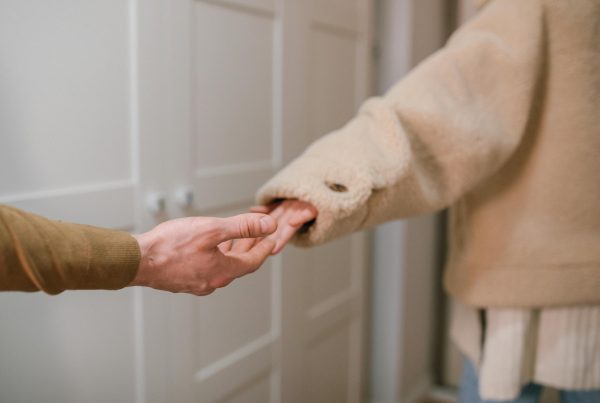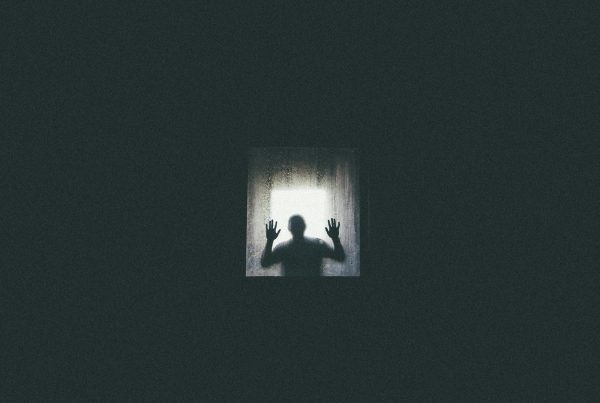WARNING
The following describes accounts of child sexual and physical abuse, which the Innocent Lives Foundation works to prevent. This blog contains content that some individuals may find disturbing or distressing in nature. Please be emotionally prepared before proceeding.
Names, locations, and other identifying information have been changed for the safety of the victims and the Innocent Lives Foundation team. Any similarity to actual names, living or dead, is purely coincidental.
Authors: Dr. Abbie Maroño
Published: August 4th, 2023
Trauma is not a singular occurrence; it is not over once it has happened. Painful memories and physical sensations associated with the trauma can linger with us for a long time, and in some cases, linger for a lifetime. In the case of sexual assault, it is not just the trauma itself that lingers, often feelings of guilt and self-blame become entwined with the memory of such trauma and overwhelm our ability to cope. This is particularly the case for individuals who feel that they were passive or paralyzed during the assault.
Some of the questions I have heard victims ask breaks my heart but exemplifies the heightened sense of guilt and self-blame that can follow such trauma. For example:
“Was it my fault?”
“Am I too weak?”
“Did I deserve it?”
“Was I asking for it?”
“What if I had been stronger?”
“Why didn’t I just defend myself? Maybe it’s my fault.”
To say that this feeling is isolating is vastly underestimating the devastating impact that this can have on a person’s sense of self and reality. Indeed, documented reports of victim statements have shown that victims themselves often state that the sense of helplessness and lack of control they felt were more psychologically damaging than the sexual aspect of the attack per se. What’s more, when an individual feels as though they did not do enough to stop the attack from happening it can even translate into feelings that they allowed it to happen.
With this in mind, it cannot be stressed enough that just because an individual did not fight back, does not mean they chose to be immobile, that they did not resist, or that they in any way consented to the assault. In fact, this response of immobility has been empirically shown to be a form of involuntary paralysis during traumatic experiences, and is a biologically predetermined survival response. However, I do not think that this is well understood in the public domain, so let’s talk about it.
Why do so many people not fight back during sexual assault?
The phrase “fight or flight,” coined by Walter B. Cannon, is well understood by both scientists and lay people alike. Simply, all human beings have been equipped, through millions of years of evolution, with a fight (action) or flight (escape) instinct to help increase their chances of survival when facing potential danger. In other words, during a threatening situation, human beings will instinctively respond by either preparing to fight back and resist, or to run away
It is less well recognized, however, that we have been biologically predetermined with a third potential response in threatening situations, the freeze response. In other words, in the face of danger, our bodies may become immobile and the instinct to freeze may overwhelm other competing action tendencies. Decades of research have shown that this freeze response may have served an important adaptive purpose in our evolutionary history. For example, during an attack from a predator, in which there is little chance of escaping or winning a fight, freezing or ‘playing dead’ may have increased the chances of an animal’s survival because the predator believes them to be dead and releases them. This freeze response has since been demonstrated across several different species, as well as evidenced in humans during both field and laboratory experiments.
Thus, freezing in the face of danger is not a sign of weakness or evidence of consent, it is a predetermined survival mechanism that is sometimes exercised as a means to maximize the chance of survival during a predatory attack. If you have been the victim of a sexual assault and feel as though you are alone in feeling ‘frozen,’ you are not. In fact, it has been shown that anywhere from 12-50 percent of victims lay motionless and do not attempt to fight back against the attacker during the assault. You are not alone, but you are also not responsible for what happened to you.
Given that feelings of self-blame directly impact how likely a victim is to seek treatment, the importance of recognizing this as an adaptive instinct and not a sign of weakness cannot be overstated. Indeed, previous studies have shown that victims who had not attempted to defend themselves or fight back against the attacker are less likely to seek treatment for recovery, in part due to feelings of self-blame. Of course, recovery from trauma and learning self-forgiveness is a process that takes time and is unique to each and every individual who goes through it. However, one thing remains consistent, carrying self-blame and feelings of guilt will always hinder the healing process. Always.
My hope is that this article has helped you to recognize that freezing in the face of danger is not rooted in weakness, rather it is rooted in the overwhelming human instinct to survive by any means necessary. As such, it is imperative that you not only read and repeat what I am about to say but that you recognize its truth:





